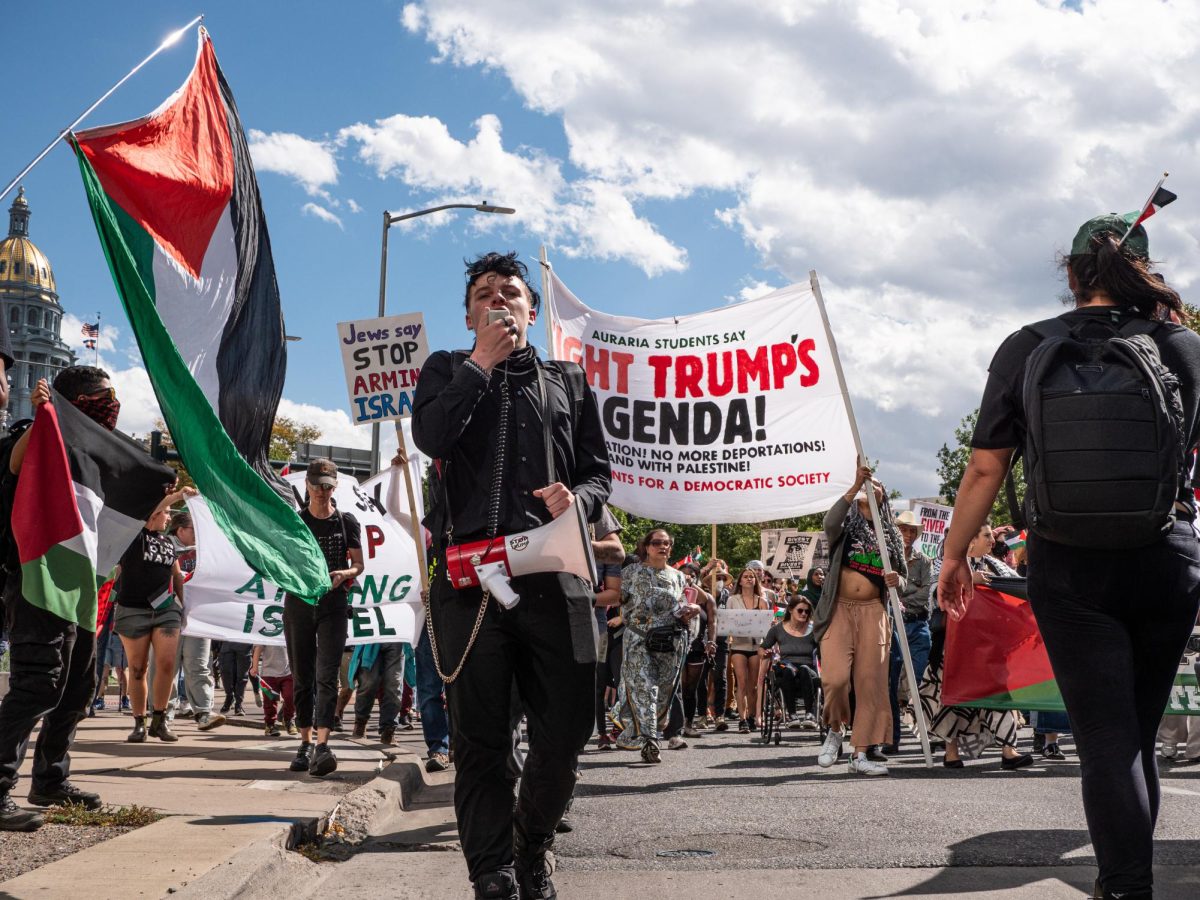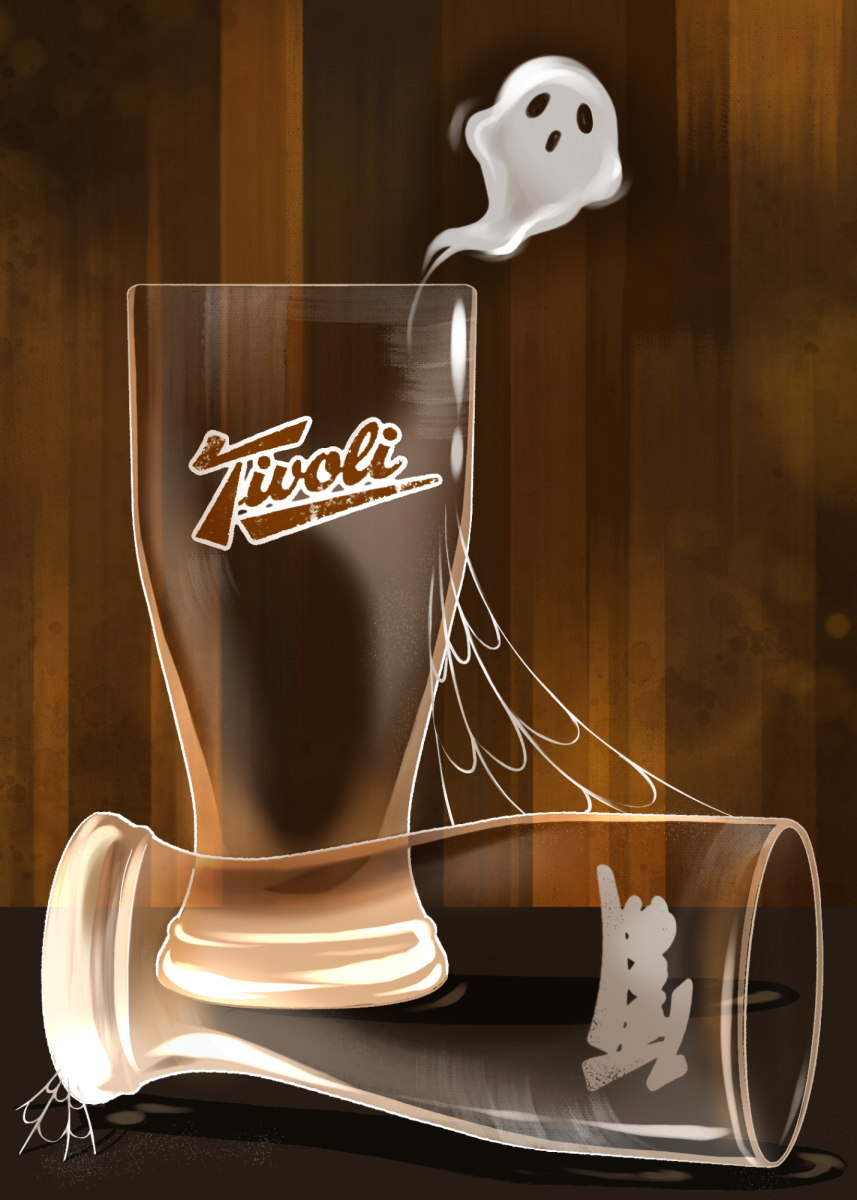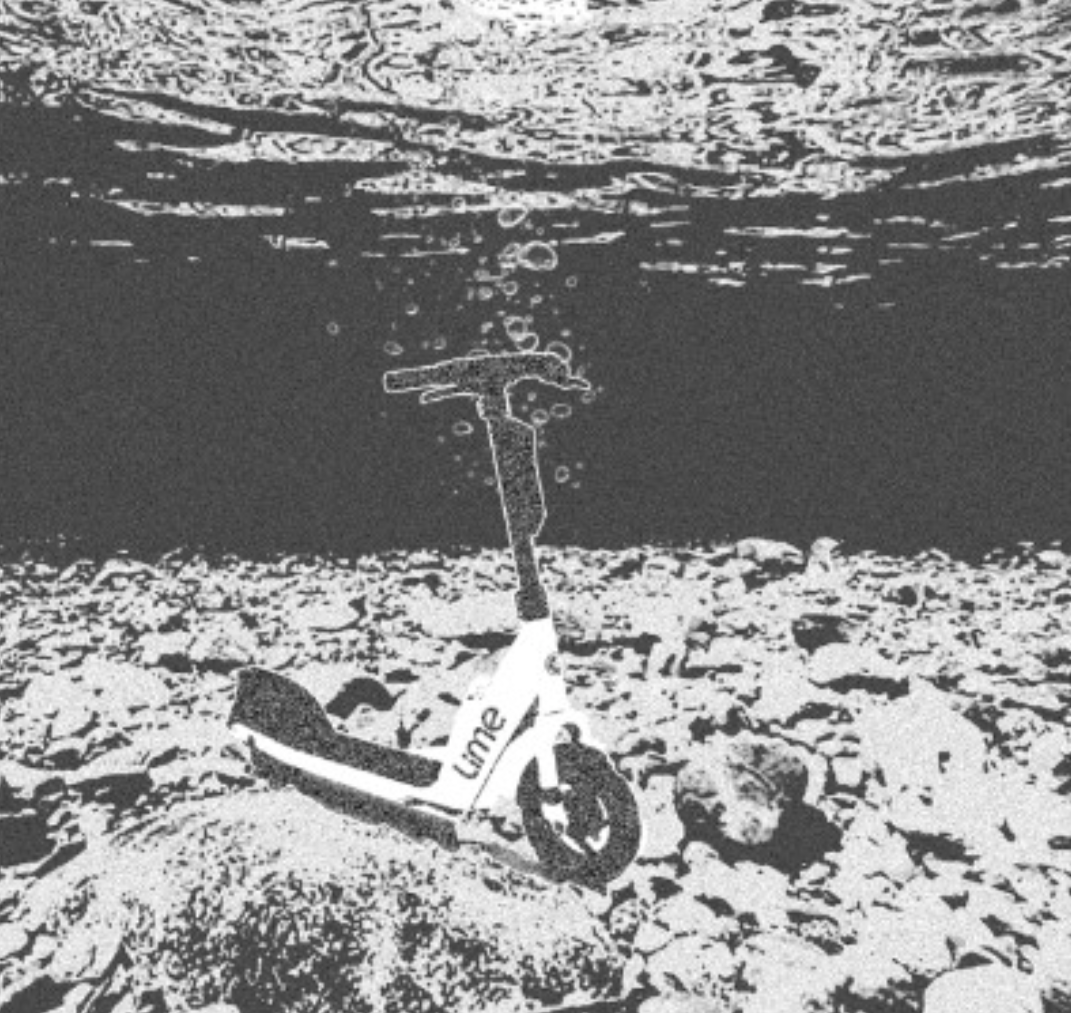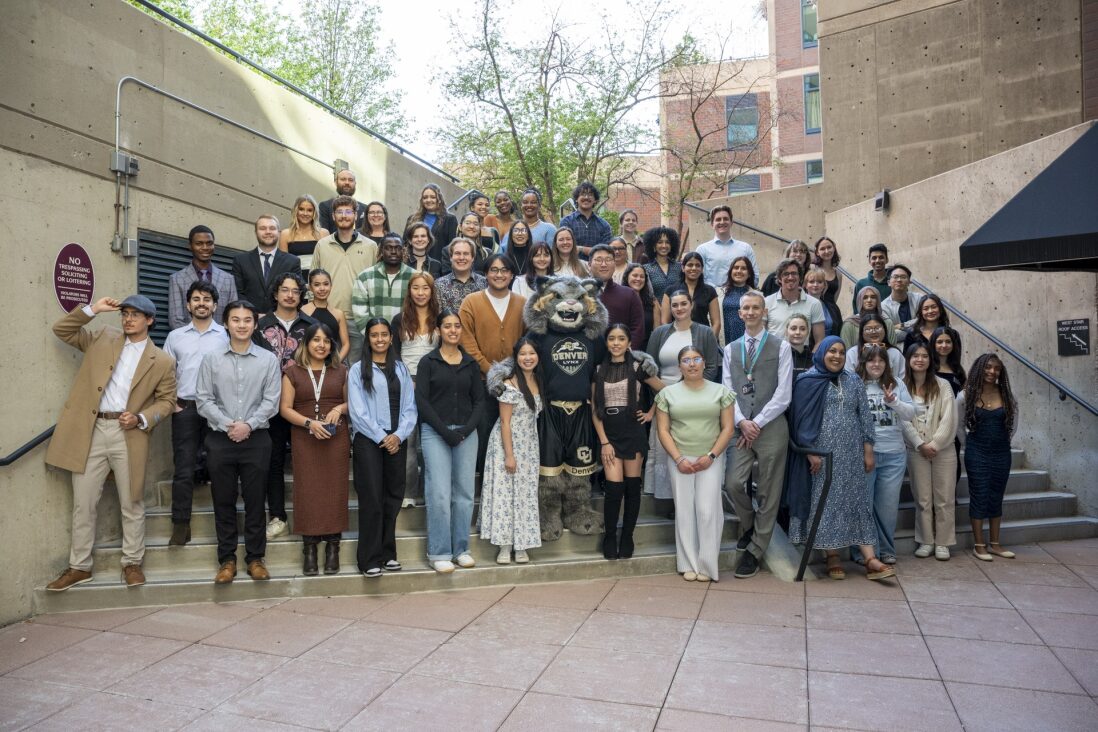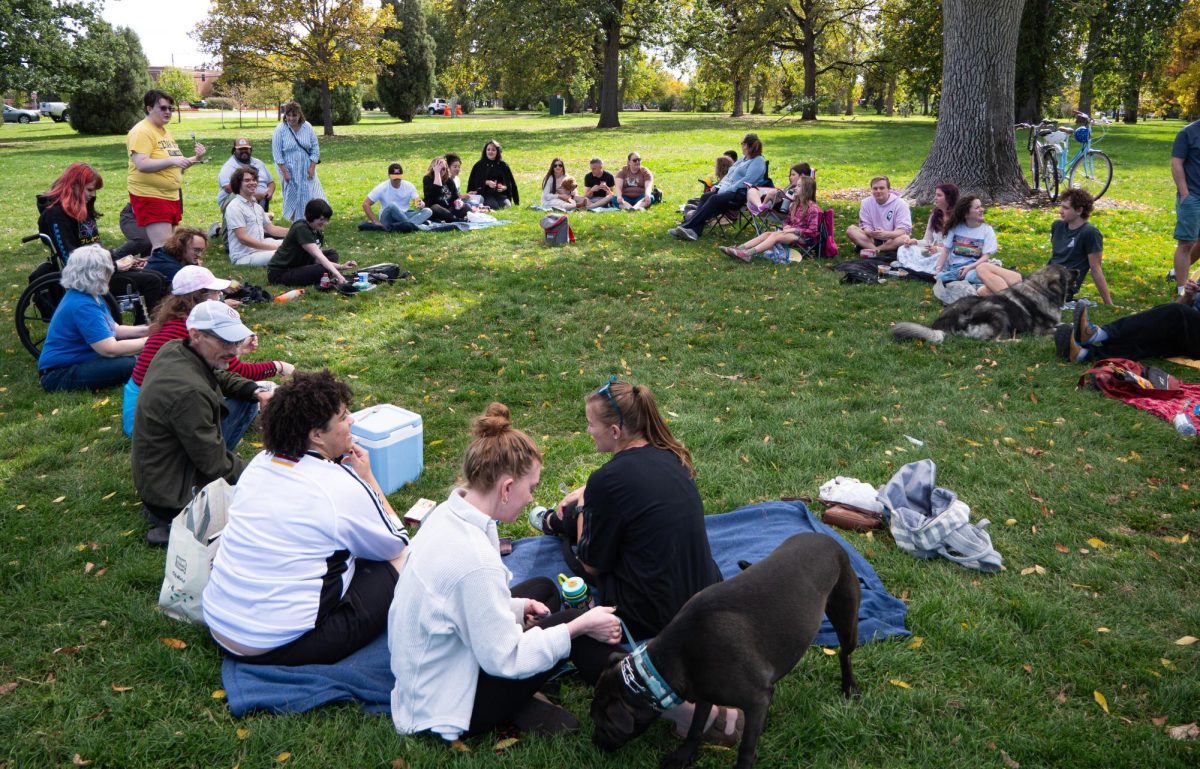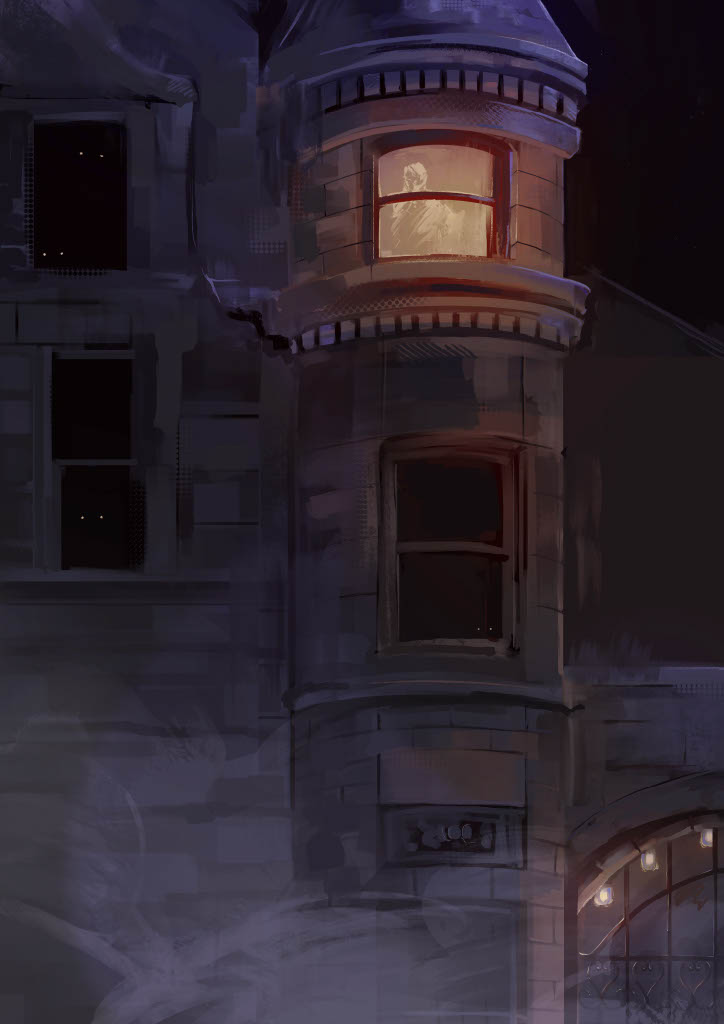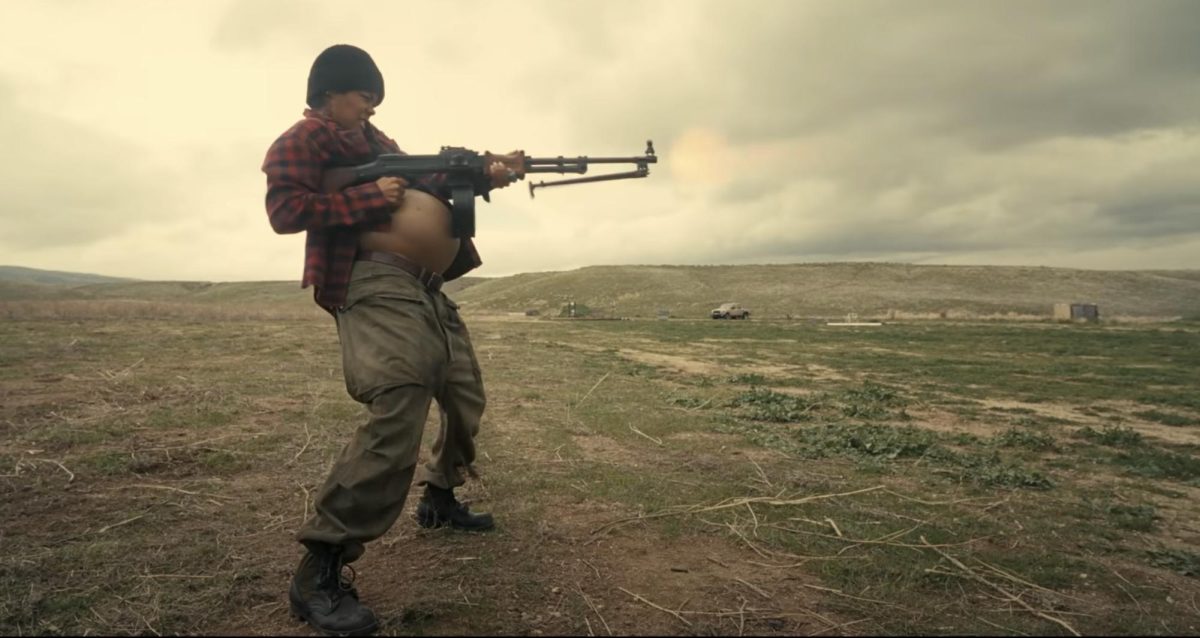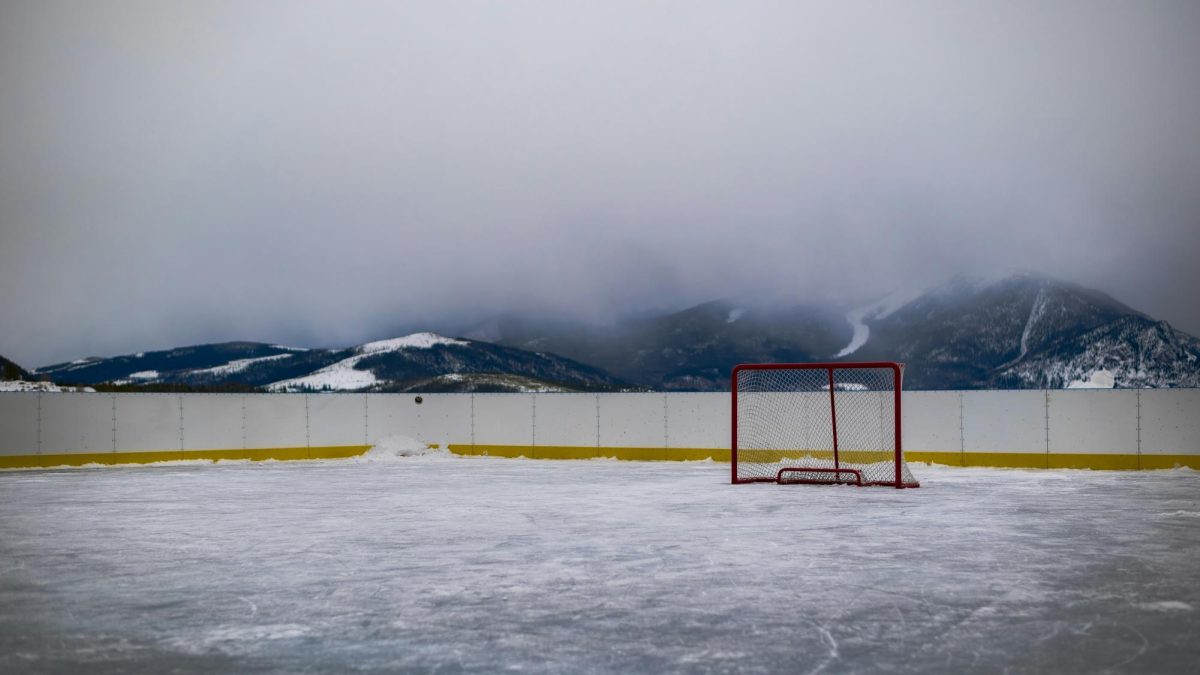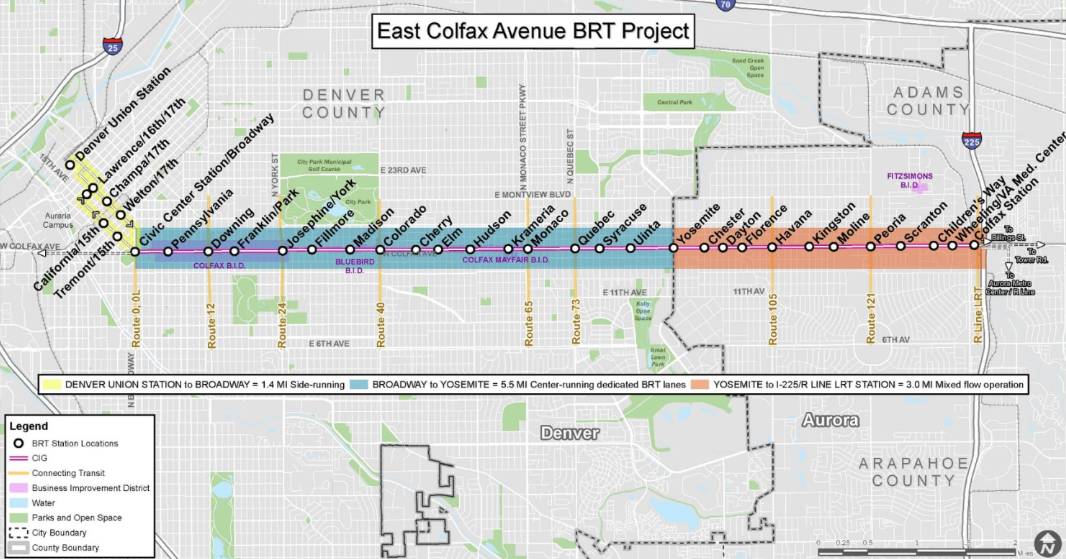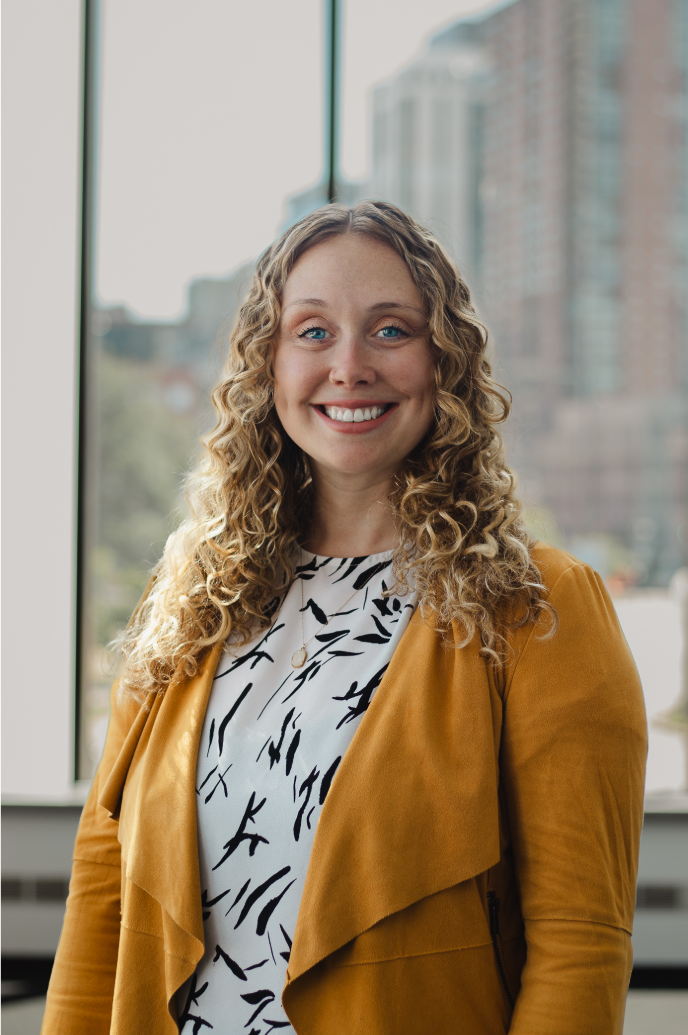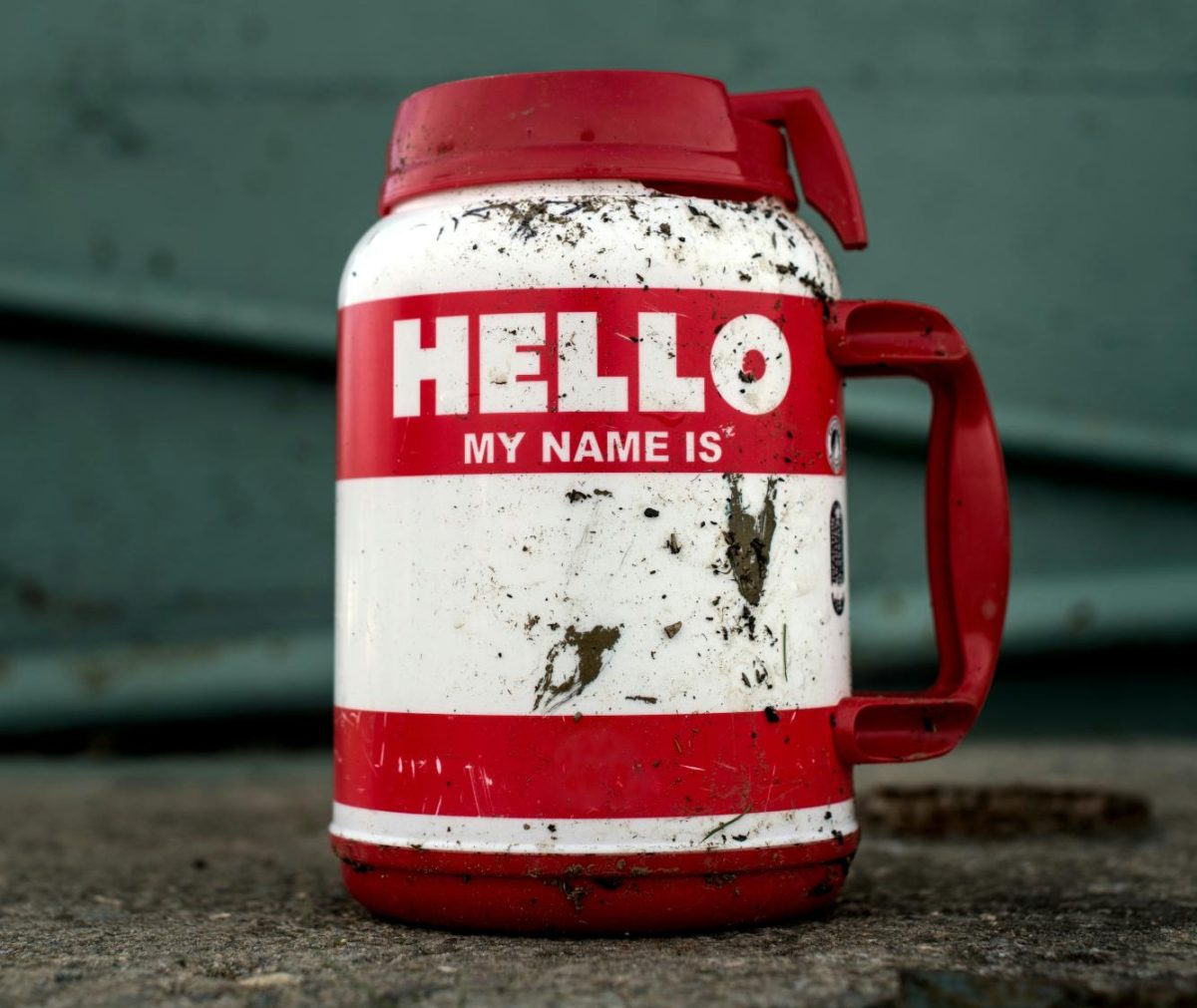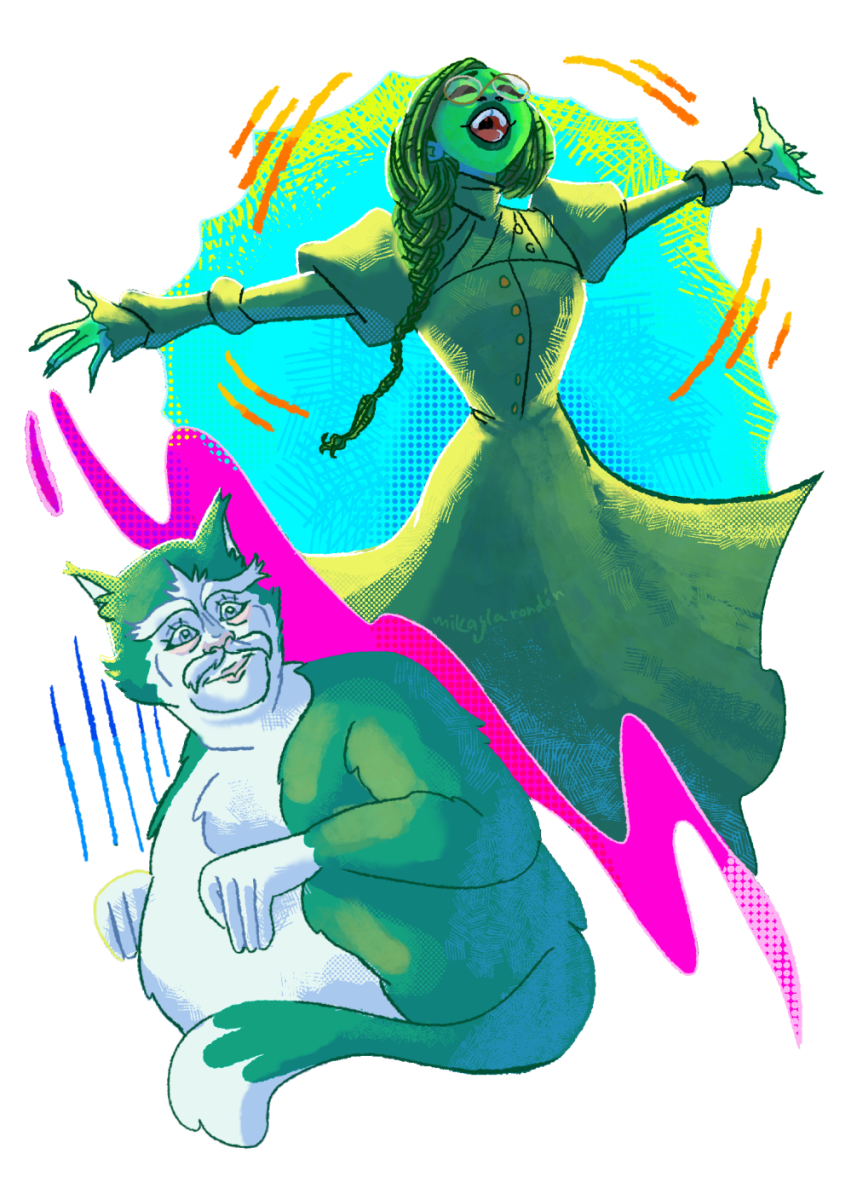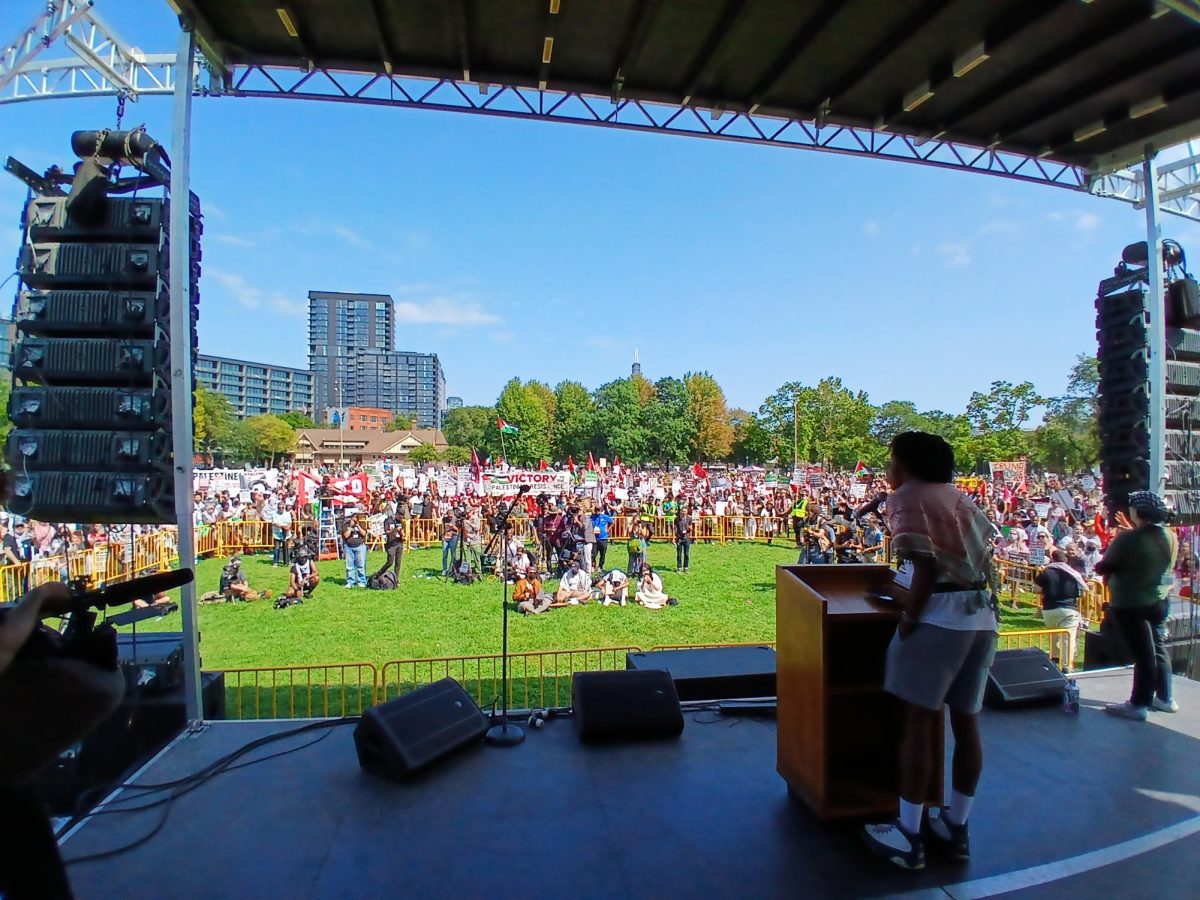CHICAGO — On Aug. 19, 2024, CU Denver student Khalid Hamu took the stage in Union Park for the March on the Democratic National Convention. Their organization, Students for a Democratic Society, had elected them to serve as their national representative for the march, and as they stepped up before the thousands-strong crowd, they hit a familiar stride.
“Disclose! Divest! We will not stop, we will not rest!” said Hamu, chanting a slogan they had brought from their organizing experience on Auraria Campus. Hamu is a senior at CU Denver, where they are working towards a degree in computer science.
Hamu brought that chant to Chicago from their organizing experience at Auraria Campus. Hamu is a member of the Denver chapter of Students for a Democratic Society (SDS), which, last April, led a pro-Palestine encampment on the Tivoli Quad for three weeks. During that time, Hamu took a leading role in SDS, guiding rallies, leading chants, and facilitating meetings.
In the many speeches Hamu gave during that time, they spoke with the clarity of a veteran organizer, centering the Palestinian people and SDS’s campaign to divest CU and MSU from Israel. Because of this experience, fellow student activists considered them a strong candidate to represent SDS nationally at the March on the DNC.
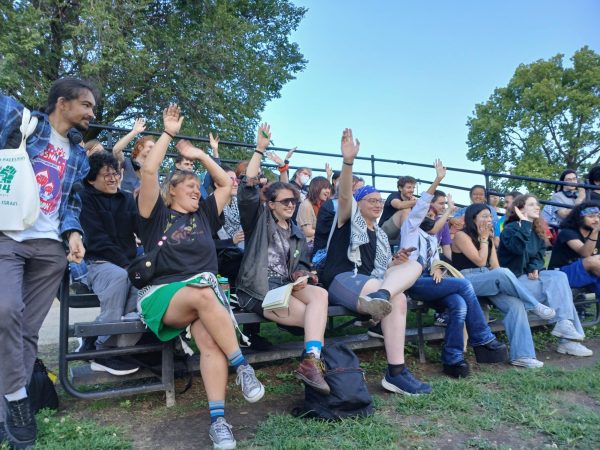
By all accounts, Hamu appears to be a seasoned student organizer—but they’re only just cutting their teeth. Less than a year before they took the stage at the March on the DNC as the national representative for SDS, Hamu had yet to take part in any organizing at all. Their journey from CU student to national organizer began when they were handed a flyer for a new members meeting for SDS in August 2023.
“I joined the new members meeting, and bam, right off the bat, we planned a lightning rally,” said Hamu. “And I was like okay, wow, these people are serious. And then, we’re fighting budget cuts, we’re calling for admin to be the ones who take pay cuts.”
At the time when Hamu joined the organization, Denver SDS’s primary focus was around CU Denver’s budget, taking on a campaign to fight cuts. However, after Oct. 7, the organization’s focus shifted towards supporting Palestine. As the issue took up more of SDS’s time and energy, the organization dropped its budget campaign in favor of a campaign to divest all CU institutions from Israel. According to Hamu, this brought a much larger and more diverse group of students to SDS protests.
“We held protests that moved an entirely different section of campus,” said Hamu. “Much more of the Muslim, Arab [student body]. A lot more people of color.” Hamu recalls actions from this time attracting students in the triple digits, a milestone for the relatively small organization.
While this period marked significant growth and renewed energy for SDS, it also brought heightened confrontation. Counter–protesters became more common at SDS events. In this highly energized context, SDS chapters from across the country converged for their national convention in Chicago, which greatly impacted Hamu.
“We slept in the offices of the National Alliance Against Racist and Political Repression,” said Hamu. “Being able to be so connected to the fight in Chicago for community control of police, the struggle there is insane. There are some fighters in Chicago who I really look up to, and it’s what made me want to keep learning. How can I learn as much as I can in SDS, so that I can go into the world and make some real change like these folks?”
SDS continued to organize protests on Auraria Campus into the spring semester. The student movement received its second wind when students at Columbia University began an encampment to demand their university divest from Israel. Hamu says this “lit a fire” for SDS, and chapters in Minneapolis and New Orleans began their own encampments soon after. SDS Denver’s encampment began on April 25, 2024.
The encampment on Auraria Campus was built by the contributions and labor of many students, professors, and community members, but a key player in its day-to-day functioning was Lucia Feast. Feast, a second-year MSU student majoring in gender studies, began her first year of college in Fall 2023. Although she had attended several SDS protests and meetings before the encampment, her participation in the organization was limited. However, when SDS held an emergency meeting to decide whether or not to start its own encampment, Feast saw an opportunity.
“When we had the original call to have the encampment, I knew I wanted to take that moment to do more,” said Feast. “I was on the call, and I signed up for more things than I ever had signed up for.”
Feast saw the student encampments as a chance to be part of a national movement. Although many students across the country had already faced police repression, Feast brushed aside her fear.
“I was thinking about arrests and if that would happen. I was ready to commit to it at that point, all of it, whatever would happen,” said Feast.
On April 26, Auraria Higher Education Center (AHEC) officials called in police to break up the encampment. Denver and Auraria police arrested 44 protestors at the encampment, Feast among them. Despite spending the night in jail, Feast took the experience in stride.
“The repression aspect felt so real, right?” said Feast. “It makes you see how threatening you are to the system and how much power you can have. All they’re trying to do is tell you you don’t have power. Then everyone [who got] arrested just showed up the next day.”
Despite the initial wave of arrests, SDS’s encampment would continue for 20 days after April 26. Feast took on a communication role, organizing day-to-day event programming and facilitating meetings, as well as miscellaneous tasks. Feast became something of a spokesperson for SDS, giving several interviews for various news organizations.
“I was just busy all day, every day,” said Feast. “It was like, ‘You’re a person that knows things now!’ But it also felt surprisingly comfortable, and it was such a heightened time that you just do what needs to be done.”
In addition to her wide array of encampment responsibilities, Feast was also directly involved in several negotiations with campus officials. These negotiations involved former CU Chancellor Michelle Marks, MSU President Janine Davidson, and AHEC CEO Colleen Walker, among other administrators. According to Feast, campus administrators are disconnected from the student body and the reality of the genocide in Palestine.
“The thing that shocked me the most was that the people in those meetings genuinely believed that they were doing everything they could, that they did not have control over the things we were asking for. I think we were threatening to them, and they would try to paint themselves as the victim in the situation.”
Although the negotiations that took place during the encampment led to little progress for SDS’s campaign, Feast has continued to communicate with MSU’s Board of Trustees, keen not to let them forget the demand for divestment.
When asked to look back on their development as student organizers, both Hamu and Feast emphasized the role of collective political struggle.
“The real theme of how I got from that new members meeting to speaker for national SDS is struggle,” said Hamu. “I feel like I really developed into somebody who can speak to a greater degree than before I joined SDS. All these reporters would ask me, ‘Khalid, why do students care so much about Palestine?’ And it’s because we get exploited by admin. And then [our tuition] goes to fund the genocide of the Palestinian people. We’re connected in struggle.”
“I really think people should get organized,” said Feast. “It’s so annoying, right? I feel like everyone says that at the end of every protest, but it’s about finding people that care as much about the issues that you care about. You’re not on your own with how awful the world is.”
In Chicago, Hamu was the last speaker before protestors took to the streets. They ended their speech the same way they began it, with a chant: “The Palestinian struggle is our struggle! The Palestinian struggle is our struggle!”

